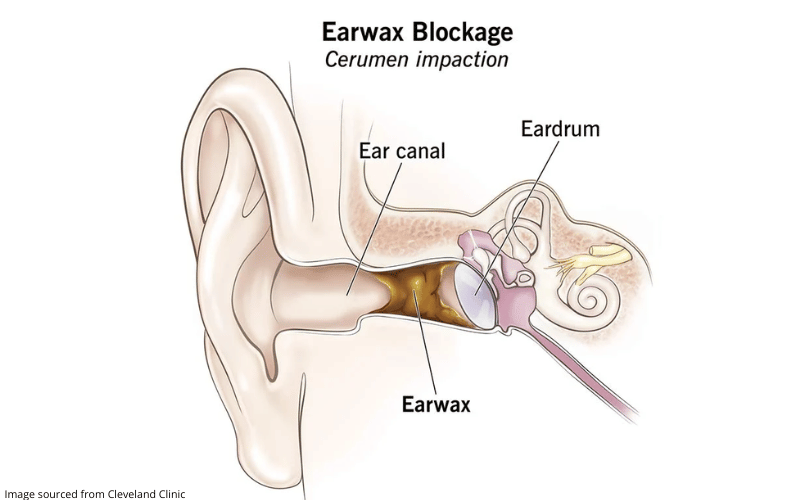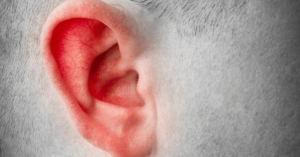Nearly everyone has encountered the occasional ringing in their ears at some point. Often, this phenomenon is brief, lasting just seconds or minutes, particularly after exposure to loud noises, such as those encountered at work or during a concert. However, it can also evolve into a chronic issue due to age-related hearing loss and various other conditions.
For those experiencing tinnitus, a common and pressing question arises: Will this condition be temporary or permanent? The idea of enduring a constant ringing sound in one’s ears is understandably daunting.
The response, in brief, is that tinnitus symptoms can vary. They might be intermittent, perhaps even fading away completely. This is the typical scenario for most individuals, and treatment options like hearing aids can significantly reduce the intrusiveness of the condition. Yet, in some more extreme cases, tinnitus can become a permanent part of one’s life.
"Treble Health helped me turn down the sound of my tinnitus. Now I can breathe, and get on with my life!"

"Treble Health helped me turn down the sound of my tinnitus. Now I can breathe, and get on with my life!"
– Elisa
Book a free consultation to learn which Treble Health solution is right for you. Join Elisa and thousands more who have found lasting tinnitus relief.
The definitive way to determine whether tinnitus is a fleeting issue or a long-term one is through consultation with an audiologist. Properly identifying the underlying cause of your tinnitus is crucial for effective treatment and management of the condition.
Tinnitus: Can It Go Away?
The most common definition of tinnitus you’ll see will mention some sort of ringing sound that can only be heard by the patient.
Though tinnitus is characterized by “phantom sounds“, there are some cases where the audiologist can hear the tinnitus sound during an examination. This is called objective tinnitus and affects about 1% of tinnitus sufferers. Objective tinnitus is caused by vascular or muscle disorders near the ears and is the only type of tinnitus with a likely cure.
The other 99% of patients have subjective tinnitus. Even though this is the most common type of tinnitus, it’s much harder to diagnose since the patient is the only one who can hear the sound. Finding the causes of tinnitus in patients may be difficult unless there are signs of damage to the ear canal or other parts of the auditory system.
Tinnitus may also be caused by aging, neurological conditions, certain medications, loud noises, or something as simple as earwax blocking the canal. Even deaf people can also experience tinnitus.
Tinnitus sounds may be heard in one (unilateral) or both (bilateral) ears, and can present itself as buzzing, hissing, humming, roaring, clicking, pulsing, etc.
Other symptoms of tinnitus include sleep disturbances, difficulty focusing during conversations, memory issues, depression, and anxiety. Tinnitus can also cause headaches, and stress, and affect people’s ability to function.
Tinnitus affects as many as 25 million Americans and can range from mild to severe. It is typically persistent, rather than temporary, meaning that it does not go away. It is given the label of “chronic tinnitus” after it has persisted for at least 3 months.
What Causes Permanent Tinnitus?
Certain factors make tinnitus permanent, or more likely to be long-lasting. These include:
Inner Ear And Auditory Disorders
Tinnitus sometimes happens when the tiny hairs on the auditory cells are damaged, which has a direct impact on the way we interpret sound. Examples of auditory disorders include auditory neuropathy (indicating a problem with the auditory nerve), and Cogan’s Syndrome, a rare disorder that can cause tinnitus and blurry vision.
Long Term Exposure To Loud Noises
Permanent tinnitus may occur when the patient is regularly exposed to loud and excessive noise. Professionals such as dentists, military personnel, musicians, and construction workers are at a higher risk of noise induced hearing loss and tinnitus due to the noisy environment they work in.
Hearing Loss
Conductive hearing loss means something is affecting the way sound travels through the outer and/or middle ear. This condition is most frequently caused by medical conditions such as otitis externa, otitis media, otosclerosis, and cholesteatomas.
Most hearing loss is sensorineural, meaning it’s caused by factors like aging (presbycusis), exposure to loud sounds (noise-induced hearing loss), conditions such as acoustic neuroma, a benign tumor on the auditory nerve, or ototoxic exposures. Mixed hearing loss, a combination of conductive and sensorineural hearing loss, is also possible.
Head/Neck Injury

Head and neck trauma can cause damage to the delicate inner ear structures and/or the auditory pathways within the brain. These injuries and other conditions related to the head, brain, and neck can cause cervical tinnitus.
Pre-Existing Medical Conditions
High blood pressure, or hypertension, can lead to changes in cellular structure and adequate oxygen-rich blood flow of the inner ear, resulting in hearing loss and oftentimes tinnitus as well. The same can happen to patients with unregulated diabetes.
Autoimmune disorders, heart problems, kidney disease, Meniere’s Disease, and Eustachian Tube Dysfunction have also been linked to unpleasant ear symptoms such as tinnitus.
Medication/Ototoxic Exposures
As many as 200 medications are known to have ototoxic properties that are harmful to hearing. Ototoxicity is known to cause hearing loss and oftentimes tinnitus and balance dysfunction as well. In some instances, tinnitus may disappear when patients stop taking the medication.
What Causes Temporary Tinnitus?

Tinnitus can be short-term, especially onset by conditions like earwax build-up, an active sinus infection, or recent loud noise exposure like a loud concert, however – it is important to note that this doesn’t necessarily result in permanent hearing loss or damage.
Tinnitus Vs Transient Ear Noise (TEN)
It’s not uncommon to experience temporary tinnitus after a night of being exposed to loud sounds at a concert, or a noisy bar. These symptoms usually last just a few minutes at a time. Transient Ear Noise is brief and tends to be heard in just one ear, and can sound like ringing, buzzing, or hissing followed by aural fullness. About 20% of the population experience TEN, but it’s usually nothing to worry about unless there’s long-term exposure to these noises.
Exposure to loud noises can cause short-lasting symptoms, and this can affect both ears at the same time. However, TEN is not a precursor to traditional, chronic tinnitus.
The cure for TEN is time.
What Are The Signs That Tinnitus Might Be Temporary?
Tinnitus is temporary if there’s a quick onset with a known cause (eg, using a cotton swab). Signs that tinnitus is likely going to go away include:
- Tinnitus sound doesn’t get worse
- You have a sinus infection, stuffy nose, ear infection
- It comes and goes, just for a few seconds or minutes
Causes Of Temporary Tinnitus
Tinnitus patients sometimes include those who lead a healthy lifestyle, free of accidents, and have a clean bill of health. A common cold or flu can cause short-term hearing loss and tinnitus as well due to inflammation of the sinuses and eustachian tubes. Typically any tinnitus due to an illness like a cold or flu will resolve within a couple of weeks.

Ear wax blockages are one of the most common causes of short-term tinnitus. Earwax removal is best left to the professionals, and cotton swabs are not recommended as a wax removal tool.
There are also many cases of short-term tinnitus due to a temporary threshold shift due to high and excessive noise exposure. This is most commonly seen post-concert attendance, as the auditory pathway may have sustained some short-term damage.
When Should One Seek A Professional For Tinnitus?
You should seek professional help if:
Your tinnitus gets worse or the symptoms persist longer than two weeks, or if you have balance issues and hearing difficulties. It is also important to mention if the sound is only on one side and/or if it is pulsatile in nature, like a heartbeat.
Can Tinnitus Go Away Completely?
Tinnitus, often associated with hearing loss, varies in its permanence and severity. While symptoms may resolve over time, especially following exposure to loud noises, chronic tinnitus could be a lasting condition. However, it’s manageable through various treatment options. Relief can be found with hearing aids, sound therapy, biofeedback, and psychological therapies like Cognitive Behavioral Therapy (CBT) and Tinnitus Retraining Therapy (TRT). These treatments, offered by specialists like those at Treble Health, can significantly minimize tinnitus symptoms, improving the quality of life for those affected.
Treble Health Can Help
Regardless of where you are in your tinnitus journey, our team of audiologists have decades of experience helping tinnitus patients reduce the ringing and get back to living their best lives. If your tinnitus is affecting your daily life, we encourage you to schedule a complimentary telehealth consultation with our team. This is a free, 20-minute Zoom call with an audiologist on our team where you can ask any questions that you may have and learn about the treatment methods that will work best for your situation. Don’t let bothersome tinnitus get in the way of enjoying the things you love – schedule a consultation today and get started on the path towards habituation!
Next Step: Book Free Consultation
- 75% of patients reduced their tinnitus within three months after following our recommendations.
- "I feel like Treble Health literally gave me my life back." - Randy S. (verified customer)
- Join thousands of people who have reduced their tinnitus after scheduling a free consultation.












